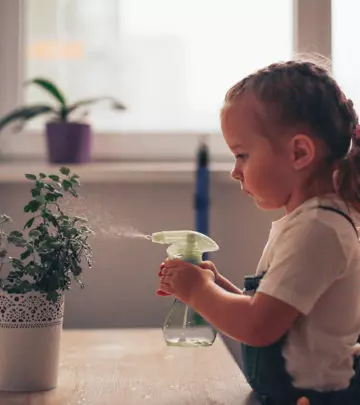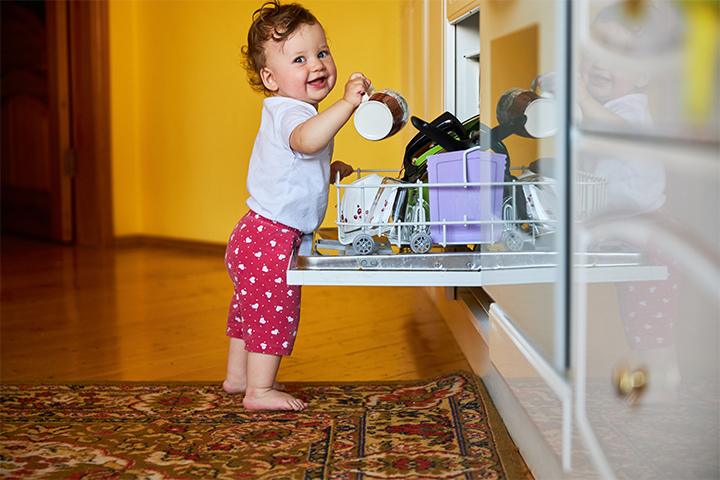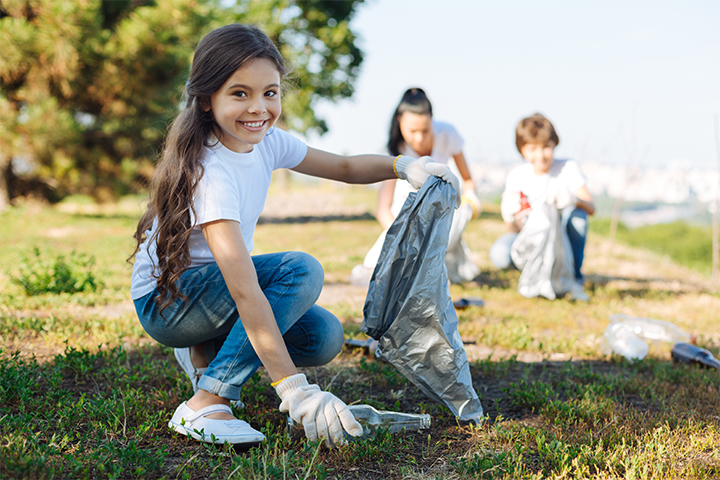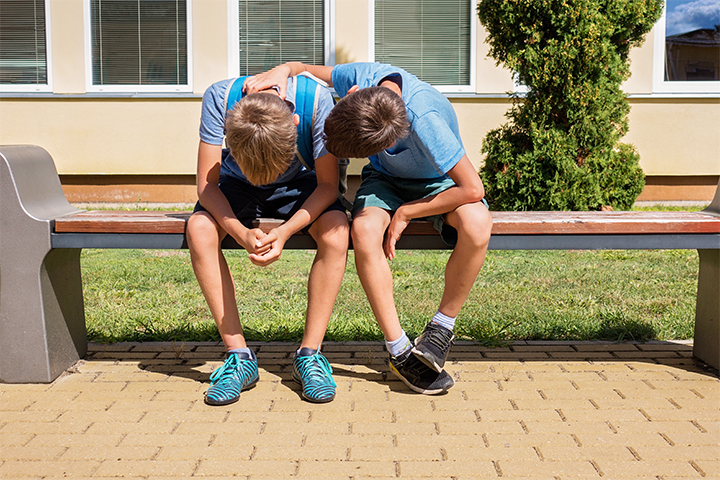
Image: Shutterstock
Every parent dreams of a perfect family where all the members, young and old, help each other to make the house a fully functional home. However, when you have a little one in your arms who grows and learns new things daily, you are not sure what chores are appropriate for them and what responsibilities they can execute without fail. Of course, you cannot expect a toddler to do laundry on their own, but they can help you carry the soiled napkins and place them in the laundry basket. Children should begin participating in chores at age-appropriate intervals, but they should not be exploited as a tool for parents to avoid doing tasks themselves. Here in this article, we have listed jobs for your kids according to their age groups to make it easy for you and your children. Read on to know them all.
Age 2-5: Learning Order And Sequence
Image: Shutterstock
Teaching your child to put on fresh clothes, wear them on their own, and then put away dirt ones into a washing basket is a great way to help them learn new abilities. It helps them see that every job has a starting, middle, and conclusion. In addition, they will learn how to divide more extensive duties into manageable chunks through simple housework. For example, toys and books should be put away, dirty clothes should go into a hamper, and dishes should be taken to the sink after every meal.
Age 6-7: Taking Part In Team Activities And Learning To Help
Image: Shutterstock
The ability to help out more at home increases when children reach this age. Helping out around the house is a great way to teach children the value of collaboration and cooperation, and children may be involved in anything from preparing meals, setting the table, and running errands like grocery shopping or meal planning. Kids learn valuable life lessons even while having a blast taking care of the family pet. In the end, your kid will feel like a part of the family and have more opportunities to form close relationships with those individuals.
Age 8-9: Stacking Everything In The Right Place
Image: Shutterstock
It’s natural for children to gain independence and responsibility as they become older. They should be encouraged to live in a well-organized environment where each item has its place. They must find a place for their books, toys, and clothes. You can ask them to fold and put away the clothes, empty their dishwasher, and put away the silverware and dishes.
Age 10- 11: Becoming Self Reliant
Image: Shutterstock
Time-sensitive responsibilities, such as packing lunch, or organizing school bags the night before, can be introduced now. Making breakfast is a complex, multi-step duty that challenges children to think ahead and work on what needs to be done. This will benefit children’s ability to manage their time effectively and solve problems. Breakfast preparation, school lunch packing, garbage removal, cleaning, and mail collection are all tasks that might be delegated to your child at this age.
Age 12-15: Setting Priorities
Image: Shutterstock
When teenagers are trusted and respected as capable individuals, their sense of self-worth might increase. In this way, a teenager’s motivation may be significantly improved by assigning them additional responsibilities that are suitable for their age. Chores like washing cars, doing laundry, simple yard work, dusting, mowing the lawn, cleaning linens, ironing, mending buttons, and wiping windows are things that can be entrusted with a pre-teen. You must encourage them with these works and help them out if they are unable to process these works on their own.
Age 16 And Up: Preparing For Adult Life
Image: Shutterstock
Adolescents bring a wealth of experience and maturity to the table. While it’s true that teaching adolescents specific skills can help them succeed in the future, it doesn’t imply you should hand over all the housework to them. After all, they are only teens. Shopping, cooking, auto maintenance, groceries, light bulb changes, deep cleaning of domestic appliances (such as defrosting the refrigerator), etc., are all excellent examples of tasks that might be assigned.
Having a helping hand at home is always welcome, and every person in the house should do their part in keeping the home happy and clean. The best way to teach your kids to do chores is to do them yourself. If both parents share equal responsibilities of doing the chores, children get more involved without needing additional pestering. Make sure you praise them for doing a good job and give them enough time to be with themselves and enjoy things they like. So, what is your trick to making your children lend help in household chores? Let us know in the comments section!


















